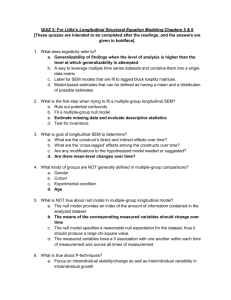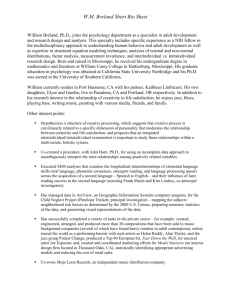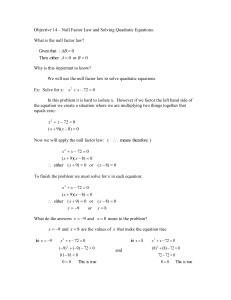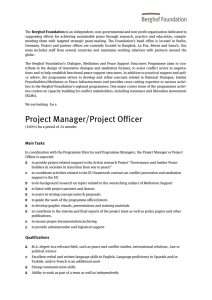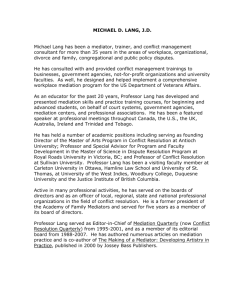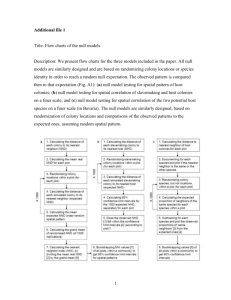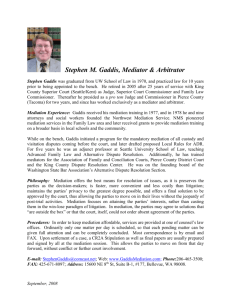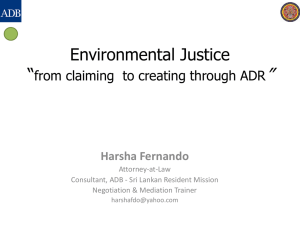QUIZ 4: For Little`s Longitudinal Structural Equation Modeling
advertisement
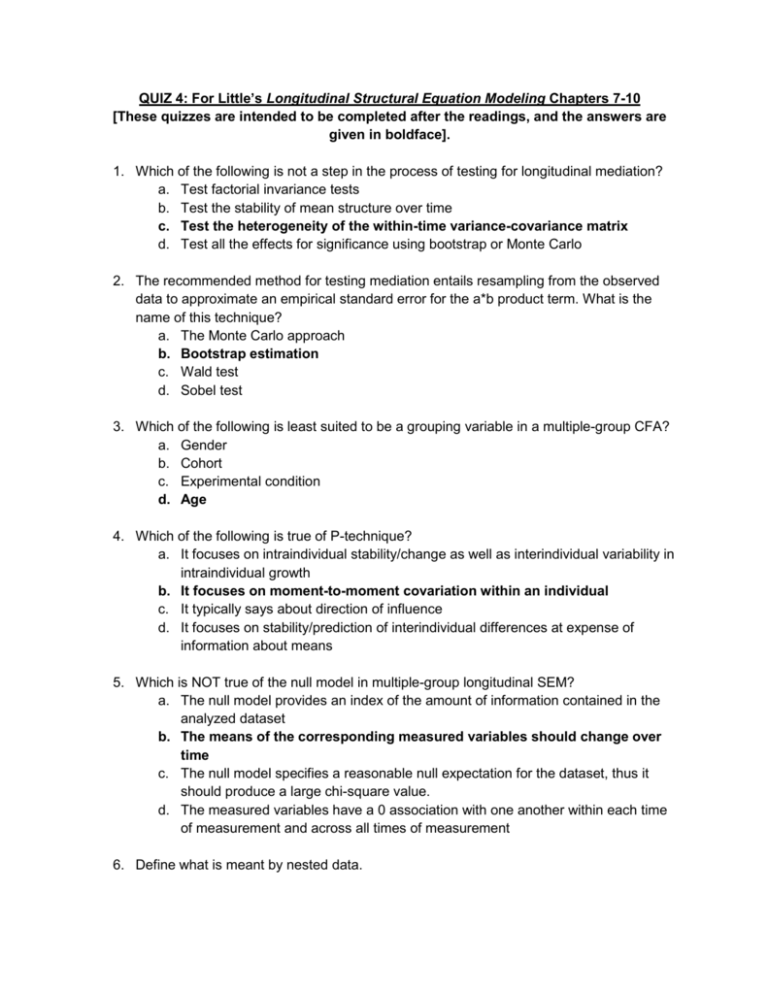
QUIZ 4: For Little’s Longitudinal Structural Equation Modeling Chapters 7-10 [These quizzes are intended to be completed after the readings, and the answers are given in boldface]. 1. Which of the following is not a step in the process of testing for longitudinal mediation? a. Test factorial invariance tests b. Test the stability of mean structure over time c. Test the heterogeneity of the within-time variance-covariance matrix d. Test all the effects for significance using bootstrap or Monte Carlo 2. The recommended method for testing mediation entails resampling from the observed data to approximate an empirical standard error for the a*b product term. What is the name of this technique? a. The Monte Carlo approach b. Bootstrap estimation c. Wald test d. Sobel test 3. Which of the following is least suited to be a grouping variable in a multiple-group CFA? a. Gender b. Cohort c. Experimental condition d. Age 4. Which of the following is true of P-technique? a. It focuses on intraindividual stability/change as well as interindividual variability in intraindividual growth b. It focuses on moment-to-moment covariation within an individual c. It typically says about direction of influence d. It focuses on stability/prediction of interindividual differences at expense of information about means 5. Which is NOT true of the null model in multiple-group longitudinal SEM? a. The null model provides an index of the amount of information contained in the analyzed dataset b. The means of the corresponding measured variables should change over time c. The null model specifies a reasonable null expectation for the dataset, thus it should produce a large chi-square value. d. The measured variables have a 0 association with one another within each time of measurement and across all times of measurement 6. Define what is meant by nested data. When the dependency occurs because of a clustering influence such as students nested in classrooms or schools (when observations are selected where some observations have a higher likelihood of looking like or correlating with some subset of the observations, a dependency in the data is said to exist) 7. Define what is meant by ergodicity. Generalizability of findings when the level of analysis is higher than the level at which generalizability is attempted 8. Describe the difference between mediation and moderation? Mediation describes the intermediary mechanism by which one variable exerts its causal influence on another variable. An expectation about mediation is undisputedly a strict causal hypothesis. It is an expectation about the way in which (or the “how” by which) one variable causes changes in another variable, which in turn causes changes in an outcome variable. A moderating variable, on the other hand, is one that is a filter or catalyst for the relations between two or more variables. Depending on how it exerts its influence, a moderating variable creates a context that either dampens or enhances the strength of an effect of one variable on to another variable. 9. Within the MTMM framework, what is a monotrait-heteromethod model? The same trait being assessed by different methods forms the convergent validity information for a given train in the MTMM framework. 10. Give a technical definition of Jambalaya (extra credit).
